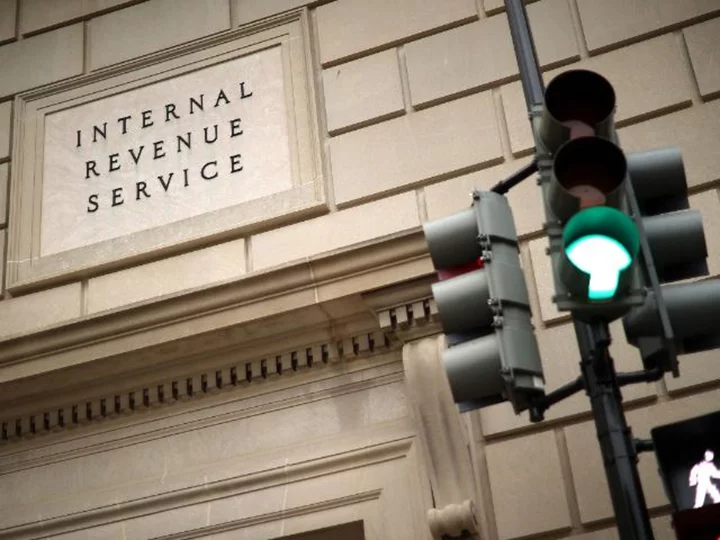
IRS veteran goes public as whistleblower in Hunter Biden criminal probe
A 14-year veteran of the Internal Revenue Service went public for the first time Wednesday as the whistleblower claiming to have information about alleged mishandling and political interference in an ongoing criminal probe into Hunter Biden.
1970-01-01 08:00
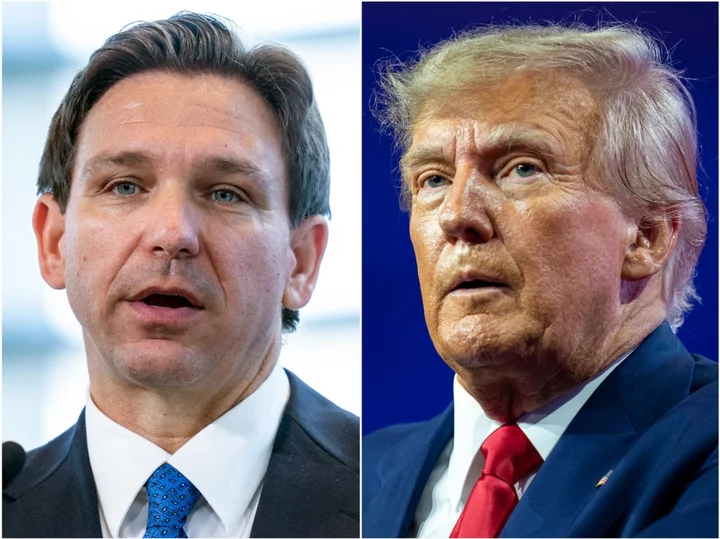
Trump mocks disastrous DeSantis 2024 launch with bizarre joke about ‘red button’ and his ‘friend’ Kim Jong-un
Donald Trump mocked the disastrous Twitter Spaces launch of Ron DeSantis’s bid for the White House as he made a bizarre joke about Kim Jong-un. The one-term president took to his Truth Social platform to poke fun at the Florida governor, whose campaign launch descended into chaos as Twitter crashed immediately as he tried to present his candidacy to Elon Musk. “Rob,” My Red Button is bigger, better, stronger, and is working (TRUTH!), yours does not! (per my conversation with Kim Jung Un, of North Korea, soon to become my friend!)” Mr Trump wrote on Truth Social. Mr Trump tweeted in January 2018 that the “nuclear button” in Washington DC was “much bigger and more powerful” than the North Korean dictator’s “and my button works!” Meanwhile, Donald Trump Jr, the eldest son of the one-term president, took to Twitter to ridicule his father’s main rival for the GOP presidential nomination, branding the campaign launch a “DeSaster.” “DeSantis is making JEB! look high energy right now,” he added. The Twitter event, which began at 6pm ET, was plunged into chaos when it was hit by tech issues and dropped audio almost immediately. David Sacks, one of the moderators of the event, said the massive number of participants was “melting the servers”. Despite the mocking he has received for the event, Mr DeSantis told Mr Musk as it ended: “We should do it again.” Earlier he laid out why he was running for president, before mostly talking about right-wing culture war issues beloved by many of his supporters. “I am running for president of the United States to lead our great American comeback,” Mr DeSantis said. “American decline is not inevitable. It is a choice,” he said. “And we should choose a new direction, a path that will lead to American revitalization.” Read More Ivanka and Jared split over attending Trump 2024 launch – follow live Why was Donald Trump impeached twice during his first term? Four big lies Trump told during his 2024 presidential announcement As Oregon Senate GOP boycott hits 'crucial point,' governor begins talks Boycott Florida? Warnings from civil rights groups on ‘hostile’ DeSantis agenda Donald Trump Jr and George Santos ridicule DeSantis for 2024 launch on Twitter
1970-01-01 08:00

Biden set to nominate Air Force Gen. C.Q. Brown as the next chairman of the Joint Chiefs of Staff
President Joe Biden is set to announce on Thursday that he will nominate Air Force chief of staff Gen. Charles Q. Brown as the next chairman of the Joint Chiefs of Staff, according to a defense official familiar with the plans.
1970-01-01 08:00
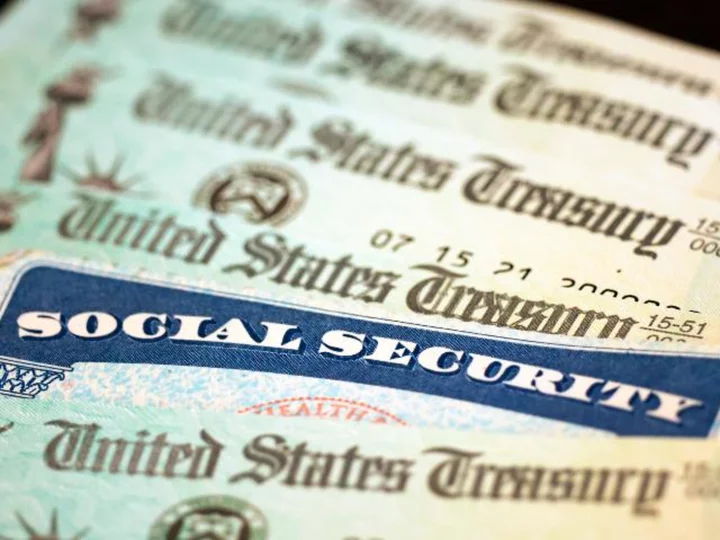
Social Security payments could be delayed due to debt ceiling impasse
If the US is not able to pay all its bills for the first time ever, senior citizens could quickly feel the pain.
1970-01-01 08:00
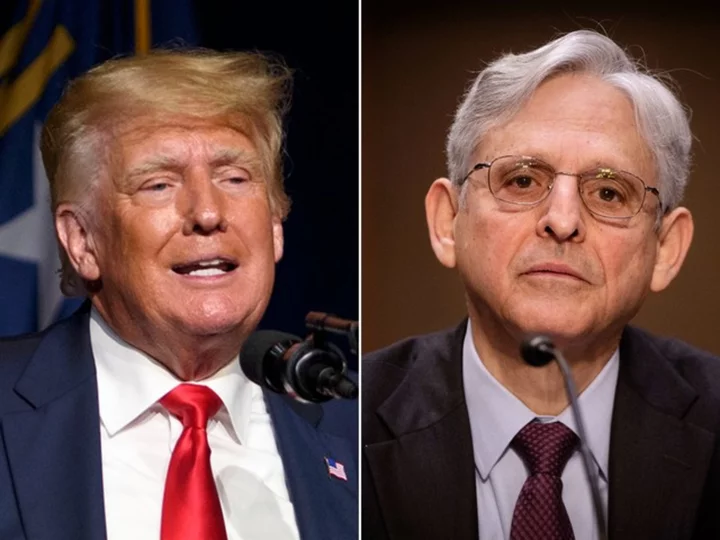
Trump's legal team hopes to appeal directly to Attorney General Garland to close criminal probes into former president
Donald Trump's legal team is arguing that the Justice Department should close the federal probes into the former president and allow the 2024 presidential campaign season, which is already in full swing, to continue "without interference" -- the former president's latest attempt to politicize investigations against him.
1970-01-01 08:00
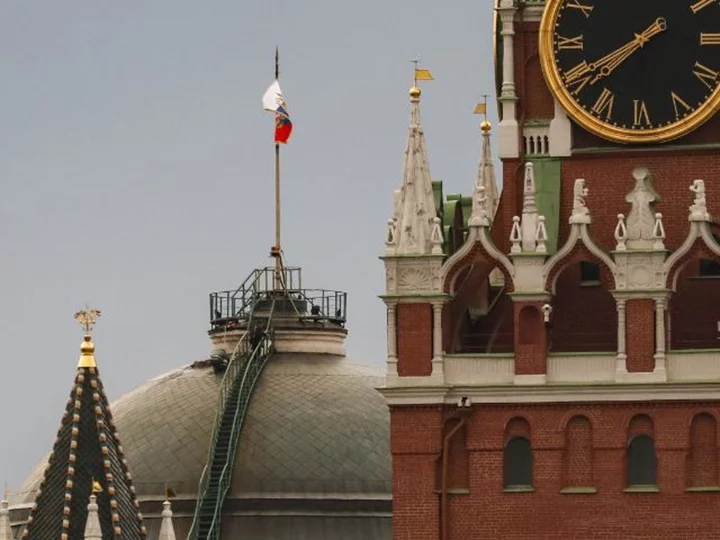
US intelligence indicates Ukrainians may have launched drone attack on Kremlin
US officials have picked up chatter amongst Ukrainian officials blaming each other for a drone attack on the Kremlin earlier this month, contributing to a US assessment that a Ukrainian group may have been responsible, sources familiar with the intelligence told CNN.
1970-01-01 08:00
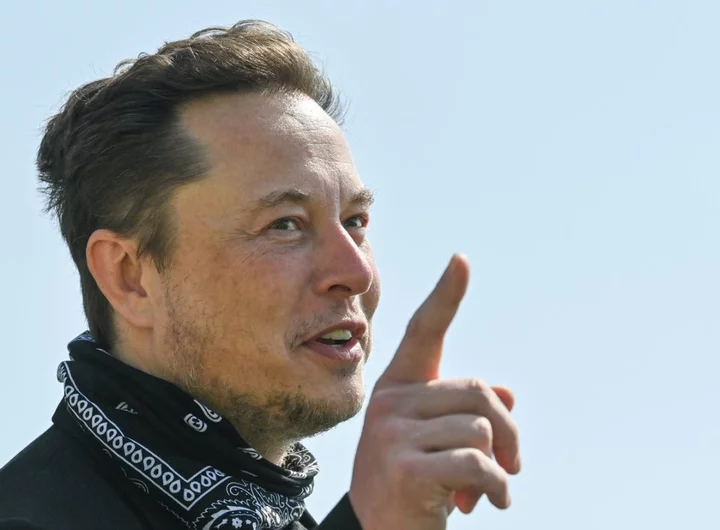
From self-proclaimed ‘socialist’ to Team Trump and DeSantis: Elon Musk’s curious politics revealed
“I prefer to stay out of politics." Those were Elon Musk’s words when forced in September 2021 to respond to a claim by Texas governor Greg Abbott that he supported the state’s anti-abortion laws. If he really does prefer to stay out of politics, however, Musk has a funny way of showing it. Over his many years of fame as the chief executive of Tesla, SpaceX, and now Twitter, the South African-born tycoon has attacked everyone and everything from Donald Trump and Bernie Sanders through individual regulatory officials to Covid rules, trade unions, and "pronouns". Since 2022, his public political stances have taken a sharp rightward turn as he declared his support for the Republican Party, aligned himself with far-right activists on Twitter, disparaged transgender rights, embraced conservative conspiracy theories, and pledged to save civilisation from the “woke mind virus”. His activities appear to have earned him the patronage of Florida’s GOP governor Ron DeSantis, who was announcing that he is running for president during a conversation with Musk in Twitter’s audio panel service Spaces on Wednesday 24 May. It is a striking departure from the 51-year-old’s aproach to politics before the Covid pandemic, when he carefully triangulated between left and right and donated to both Democrats and Republicans while variously declaring himself a “moderate”, a “socialist”, and “socially liberal and fiscally conservative”. Yet despite evidence to the contrary, Musk still claims to be an independent who is “neither conventionally right nor left” and committed to healthy debate. So what does Elon Musk really believe? And – given that he is both one of the world’s richest people and the owner of one of its largest social networks – what does that mean for the rest of us? Embracing the Republican Party Let’s start with Musk’s recent support for the US Republican Party, which has been clear and unambiguous, if not without caveats. “In the past I voted Democrat, because they were (mostly) the kindness party. But they have become the party of division and hate, so I can no longer support them and will vote Republican,” he said in May. This came after months of criticism of President Joe Biden, which included hammering his flagship infrastructure and social spending bills for granting subsidies to the electric car industry and increasing the “insane” federal budget deficit. Musk later called the president a “damp sock puppet in human form”. In June 2022, Musk went further, revealing he had voted for Republican congressional candidate Maya Flores in a special election – the first time, he claimed, that he had ever cast a vote for the GOP. “Massive red wave in 2022,” Musk tweeted, though it was unclear if he meant this as a prediction or a rallying cry. Florida governor Ron DeSantis joked about the South African-born billionaire’s comments: “I’m focused on 2022, but with Elon Musk, what I would say is I welcome support from African Americans. What can I say?” Despite all this, Musk has stopped short of declaring his permanent support for the party as a whole. Following his tweet about the special election, one Twitter user asked: “I assume Republican for president [too]?” “[To be determined],” Musk replied. “What are you leaning towards?” he was asked in a follow-up question. “DeSantis,” he said. Similarly, the mogul’s endorsement of the Republican Party on the day before the US midterms in November 2022 was somewhat qualified. “To independent-minded voters: Shared power curbs the worst excesses of both parties,” he told his his 115 million Twitter followers. “Therefore I recommend voting for a Republican Congress, given that the presidency is Democratic. Hardcore Democrats or Republicans never vote for the other side, so independent voters are the ones who actually decide who’s in charge!” After the election, Musk added: “To be clear, my historical party affiliation has been Independent, with an actual voting history of entirely Democrat until this year. And I’m open to the idea of voting Democrat again in the future.” A self-proclaimed ‘centrist’ who donates to both paties Musk’s caveats about supporting the GOP echo his longstanding claim to be a “centrist” or an “independent” who does not fit into traditional boxes of left or right. For years, he has offered varying definitions of his own politics. His most consistent theme has been that he is “socially liberal and fiscally conservative”, or even “socially very liberal”. In 2020, he put it this way: “I’m socially very liberal. And then economically right of center, maybe, or center. I don’t know. I’m obviously not a communist.” In 2018, he described himself as “a utopian anarchist of the kind best described by Iain Banks”, referring to the late Scottish sci-fi author who wrote longingly (if sceptically) of a space-faring anarcho-socialist civilisation called the Culture, which has no money, no poverty, no wage labour, no police, no prisons, no standing army, and nearly infinite abundance of basic goods. At another point Musk claimed to be a “socialist”, but “not the kind that shifts resources from most productive to least productive”. He later said we should not take what he’d said too seriously. In April 2021, he posted a stick figure cartoon on Twitter that depicted political moderates, including himself, standing still on the political spectrum while the left accelerates away into extremism, dragging the centre ground away and making moderates appear right-wing by comparison. The following November, he professed himself “neither conventionally right nor left”, and in December remarked: "You know Twitter is being fair when extremists on far right and far left are simultaneously upset!" Musk’s political donations offer some support for this. According to data gathered by the non-profit lobbying watchdog Open Secrets, Elon Musk has given a total of $1.2m to politicians, parties, political action committees (PACs), and referendum campaigns since 2002. That money went almost equally to Democrats, with $542,000, and Republicans, with $574,500, with another $85,000 going to two broadly left-wing referendum campaigns in California. The balance has fluctuated over the years: in 2006, 2013 and 2017 he donated overwhelmingly to Republicans, while in 2015 he gave exclusively to Democrats. He has also given a total of $30,000 to a PAC set up by SpaceX, which donated 54 per cent of its total to Democrats and 46 per cent to Republicans. Many of the individual politicians he gave to were state legislators in California, where Tesla was formerly based, and Texas, where SpaceX has long maintained rocket testing and launch facilities. Musk donated to more individual Democratic politicians than to Republicans, and often praised specific Democrats in a way he has rarely done with their opponents. Way back in 2005, he gave $10,000 to California’s Proposition 82, a proposal to increase taxes on the rich to pay for universal pre-school for four-year-olds, although it did not pass. When Donald Trump was a candidate for the Republican nomination, Musk said of him: “I feel a bit stronger that he is probably not the right guy. He doesn’t seem to have the sort of character that reflects well on the United States.” Musk says he voted for Joe Biden in 2020. Meanwhile, SpaceX itself has spent about $9.7m on lobbyists and Tesla has spent $5.5m. The former company relies on government contracts for much of its revenue, while the latter is subject to plenty of regulation. "SpaceX's campaign to win political support has been systematic and sophisticated," wrote the Sunlight Foundation in 2013. Musk has described these donations not as a signal of his own personal beliefs but simply as the cost of doing business in America. "In order to have your voice be heard in Washington, you have to make some little contribution," he told the Huffington Post in 2013. All of which helps explain why the first version of this article – back in December 2021 – framed Musk’s political beliefs as elusive and somewhat puzzling. Since then, however, Musk’s own behaviour has made that idea rather outdated. Elon Musk, culture warrior There’s no avoiding the obvious: Musk appears to have been thoroughly red-pilled. Originally drawn from the 1999 sci-fi film The Matrix, the “the red pill” is a phrase used by white supremacists and anti-feminists to describe the process of being radicalised into their worldview. Musk himself urged his Twitter followers to “take the red pill” in April 2020. It is a neat expression of how far down the culture war “rabbit hole” Musk has burrowed since then. He has described “wokeness” as a “mind virus” that poses a “mortal threat to civilisation”, declaring: “The woke mind virus is either defeated or nothing else matters.” In a June 2022 interview with The Babylon Bee, a conservative satire site, he said: "At its heart, wokeness is divisive, exclusionary and hateful. It basically gives mean people... a shield to be mean and cruel, armored in false virtue." In a similar vein, he mocked Twitter’s adoption in 2016 of “Stay Woke” T-shirts inspired by the 2014 Ferguson protests against police racism, claiming that the protesters’ “Hands up, don’t shoot” slogan was “made up” and that “the whole thing was a fiction”. The US Justice Department did indeed clear the officer who shot Michael Brown, but also concluded that Ferguson police had “routinely” violated citizens’ constitutional rights and discriminated against Black people. Texas governor Greg Abbott, to whom Musk donated $10,000 in 2014, has claimed that Musk “likes the social policies” of his state, which include banning almost all abortion and defining transgender healthcare for under-18s as “child abuse”. Musk rebuffed him, but ambiguously and mildly, with nothing like the fire and brimstone he has mustered against trade unions or tax proposals. Musk has also boosted right-wing conspiracy theories, claiming that health tsar Anthony Fauci should be prosecuted and sharing a groundless claim about the attack on Nancy Pelosi’s husband from a website with a history of fake news. As a homophobic hate campaign began to gather steam against one of his former employees, Yoel Roth, Musk weighed in to groundlessly imply that Roth was an enabler of child abuse. Roth subsequently suffered a torrent of abuse and threats that reportedly forced him to leave his home. That incident echoed the US right’s growing penchant for smearing political opponents, and particularly LGBT+ people, as paedophiles or “groomers”. According to the left-wing think tank Media Matters, some members of the quasi-fascist QAnon movement – which helped popularise child abuse smears as a political tactic – are convinced that Musk is one of them, albeit based on shaky evidence. On Twitter, Musk regularly interacts on friendly terms with far-right activists who traffic in hoax claims about the 2020 US election and hate speech about minority groups, sometimes soliciting their advice about how to run the site or chiming in to agree with their tweets. Perhaps this could be explained as a commitment to maintaining open discussion across political divides – except it’s hard to name any left-wingers with whom he is so pally. Musk has shown a particular antipathy to Covid lockdowns, which he once described as "fascist". He declared early in the pandemic that "the coronavirus panic is dumb" and wrongly predicted that the virus would be gone from America by the end of April 2020. He has also consistently singled out transgender people in his critiques of “wokeness”. While he has claimed to “absolutely support” trans people, he scorns the idea that anyone should be expected to use the correct pronouns when referring to them, which most trans people view as a basic act of respect that is necessary for their equal participation in society. “Forcing your pronouns upon others when they didn’t ask, and implicitly ostracising those who don’t, is neither good nor kind to anyone,” Musk said in December 2022. He has previously declared that “pronouns suck” and tweeted a meme likening cisgender people who state their pronouns on their Twitter profiles to oppressive Redcoats in colonial America. Before buying Twitter, he railed against the social network’s rules on anti-trans hate speech, which forbid users from intentionally referring to specific trans people by their birth sex (known as misgendering) or by old names they have renounced (known as deadnaming). As chief executive, Musk has reportedly made reviewing that policy a top priority. And, just after Christmas 2022, Musk liked a tweet by Libs of TikTok, a conservative Twitter account that has been accused of encouraging violence and harassment against LGBT+ people, that appeared to characterise educating children about LGBT+ issues as “confusing kids about their identity” and “stealing childhood innocence” while describing transition healthcare as “sterilising and mutilating kids”. Critics have suggested that this rhetoric may be related to Musk’s estrangement from his trans daughter, who has legally renounced his surname and said that she does not want to be related to him “in any way, shape or form.” Musk has blamed “neo-Marxists” at her university for turning her against him. Others have raised eyebrows at the fact that Musk’s former girlfriend, the electronic musician Grimes, is now in a relationship with a trans woman. All in all, it’s hard to reconcile Musk’s actions in 2022 with his claims of centrism. Nor does his alliance with pro-Trump outrage merchants say much for his once-vaunted “social liberalism”, which previously led him to favour “direct democracy” over representative democracy and advocate for the release of people imprisoned for cannabis offences. Pro-capitalist and anti-union Social policies notwithstanding, Musk remains an ardent free-marketeer who is deeply skeptical of government interventions in business. That was the basis of his attack on President Biden's Build Back Better Act in December 2021, saying the bill's tax rebate of up to $12,500 for people who buy electric cars is an "unnecessary" handout for an industry that is already taking off. He backed that up with a revealing philosophical argument about the difference between corporations and nation states. "It does not make sense to take the job of capital allocation away from people who have demonstrated great skill in capital allocation," he said, meaning business leaders, "and give it to an entity that has demonstrated very poor skill in capital allocation, which is the government. Government is simply the biggest corporation, with a monopoly on violence – and where you have no recourse. So how much money do you want to give that entity?" This libertarian-style thinking is fairly consistent for Musk. He has strongly opposed trade unions, especially in his own companies, as a barrier to efficient operations, and skirmished repeatedly with Bernie Sanders over the Vermont senator’s proposals for an income tax on billionaires. He claimed in October that Biden "seems to be controlled by unions" and in 2018 tweeted that Tesla employees who attempted to unionise would lose their stock options, which regulators have claimed was illegal. When he does endorse government intervention, Musk tends to favour measures that minimise government bureaucracy. Rather than subsidies for green industries, for example, he wants a carbon tax, and says he lobbied the Biden administration to create one. His argument is that the price of fossil fuels doesn't properly reflect their cost to the environment, meaning companies are basing their decisions on false information. Taxing carbon would correct that balance, allowing the free market to figure out in its own way how best to cut their emissions. That said, none of this stopped him from accepting billions of dollars in government subsidies for both Tesla and SpaceX. Similarly, Musk has long argued for a universal basic income to support human workers whose jobs, he believes, will soon be replaced with artificial intelligence (AI). In some ways that's a pretty left-wing idea, since it would involve spending enormous amounts of taxpayer money. But it has also been favoured by some conservatives such as Richard Nixon and free market economists such as Milton Friedman, both of whom felt it would prevent government bureaucrats deciding who deserves benefits and avoid punishing recipients for finding work. Green power has often been Musk's red line Another point of consistency has been global warming and clean energy. Back in 2006, Musk gave one of his biggest ever single donations – $75,000 – to Proposition 87, a California referendum campaign to impose a special tax on fossil fuel extractors. Since then, emissions have often been his red line. In the early years of Donald Trump's presidency, Musk joined a White House advisory council, saying that "the more voices of reason that the president hears, the better". But when Trump withdrew the US from the Paris Climate Agreement, Musk quit, saying: "Climate change is real. Leaving Paris is not good for America or the world." And when Musk was persuaded to get into Bitcoin – a natural fit, given his libertarian outlook and his penchant for technological solutions for political problems, to say nothing of his fondness for controversy – it was the currency's prodigious carbon emissions that led him to rethink. "Tesla has suspended vehicle purchases using Bitcoin," he said in May 2021. "We are concerned about rapidly increasing use of fossil fuels for Bitcoin mining and transactions, especially coal, which has the worst emissions of any fuel. Cryptocurrency is a good idea on many levels and we believe it has a promising future, but this cannot come at a great cost to the environment." Where Musk has supported Biden, that too is connected to the environment. Just after the president’s inauguration, he told Fortune: "I'm super fired up that the new administration is focused on climate... I feel very optimistic about the future of sustainable energy with the new administration." Even in his culture warrior era, Musk has stuck to this particular gun. When conservative activist Tom Fitton claimed in December 2022 that electric cars have “no impact on climate”, Musk responded, curtly: “Yeah they do.” A technocrat with astral ambitions Through all these issues runs one strain of Musk's politics that genuinely does not map onto the traditional political compass: technocracy. Back in the 1930s and ’40s, Musk’s grandfather Joshua Haldeman was the Canadian leader of the original technocratic movement, which believed in replacing both politicians and bankers with whoever had the most expertise. Elon Musk, capitalist extraordinaire, does not exactly take after his grandfather. Like the movement’s founder William Henry Smyth, though, his statements suggest a strong underlying belief that scientists and engineers can solve political problems that are intractable to others. As the historian Jill Lepore has argued, Musk inspires numerous followers with an exotic brand of techno-capitalism that she calls "Muskism". She says that many of its ideas are drawn from science fiction, sometimes very old science fiction, meaning that alongside rockets and cars it is also selling "visions of the future". Musk thinks we may live in a simulation; he regularly references Scottish sci-fi author Iain M Banks; and he is especially preoccupied with the dangers of AI, which he calls "the most serious threat to the survival of the human race". He is worried not only about mass automation of white-collar jobs but also the rise of a theoretical hyper-intelligent AI that is too powerful for humans to restrain. "With artificial intelligence we are summoning the demon," he said in 2014. "In all those stories where there’s the guy with the pentagram and the holy water, it’s like – yeah, he’s sure he can control the demon. Doesn’t work out." Both that and global warming feed into Musk's conviction that colonising other planets – becoming "a multi-planet species" – is crucial to humanity's long-term survival. However seriously you take that, it is clearly an important goal that shapes the rest of his politics. Even his diatribes against the “woke mind virus” – as well as his hostile takevoer of Twitter – are based on the idea that “wokeness” and divisive social networks are a threat to human civilisation. It is a characteristically cosmic rationale for tweeting incessantly about pronouns. Two things are notable here. One is that many of these issues are not very well-known outside the tech industry, and to prioritise them suggests that you believe everyone else is missing a trick. The other is that Musk is not attempting to meet the dangerous future through government action or massive collective institutions like formal movements or trade unions. Instead, he wants to solve it himself, through hierarchical top-down for-profit companies run by him where he decides how to allocate capital. In other words, he is his own kind of technocrat: a talented engineer and huge nerd who thinks engineers and nerds can design better systems of government and economics than currently exist. For evidence, look at Musk’s troubled Hyperloop project, which is trying to build a new form of public transport while eschewing any input from traditional transit experts, who say that he has essentially invented very inefficient buses. (It is also among the beneficiaries of Biden’s infrastructure bill.) WhenTIME magazine named Musk its 2021 Person of the Year, it described him this way: “The man from the future where technology makes all things possible is a throwback to our glorious industrial past.” But many of the people who actually lived in that past reviled its industrialists as “robber barons”, and their misdeeds inspired regulations and social policies that are still in place today. That is why Professor Lepore describes Muskism as containing "a lot of feudalism", saying: "It’s like there are these lords and the rest of us are the peasantry and our fates are in their hands because they know best... The presumption that Jeff Bezos and Elon Musk, [two of the] wealthiest people in the world, get to decide the extraterrestrial fate of humankind is a bizarrely regressive notion." Musk has his own bullish answer to such claims. "To anyone I’ve offended, I just want to say: I reinvented electric cars and I’m sending people to Mars in a rocket ship," he said on Saturday Night Live in May 2021. "Did you think I was also going to be a chill, normal dude?" This article was originally published on 9 December 2021, and has been regularly updated since then. Read More Elon Musk wants to proceed with $44bn Twitter buyout Zelensky fires back at Elon Musk’s ‘insane’ Twitter poll on Russia Ukraine peace Elon Musk Twitter deal - live: Stock market goes wild as Tesla mogul’s $44bn buyout is accepted Ivanka and Jared split over attending Trump 2024 launch – follow live Why was Donald Trump impeached twice during his first term? Four big lies Trump told during his 2024 presidential announcement
1970-01-01 08:00

Chinese hackers seeking to disrupt communications between US and Asia in event of crisis, Microsoft says
Chinese government-backed hackers are likely pursuing cyber capabilities that could be used to "disrupt critical communications" between the US and the Asia Pacific region in the event of a future US-China crisis, Microsoft warned on Wednesday.
1970-01-01 08:00
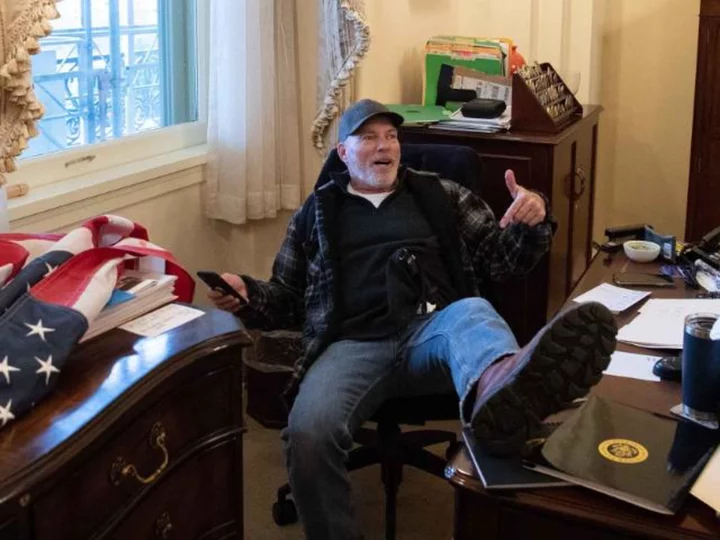
Man who rested feet on Pelosi office desk on Jan. 6 sentenced to over four years in prison
The man who was infamously photographed with his feet on a desk in Rep. Nancy Pelosi's office during the January 6, 2021, attack on the US Capitol was sentenced Wednesday to four and a half years in prison.
1970-01-01 08:00
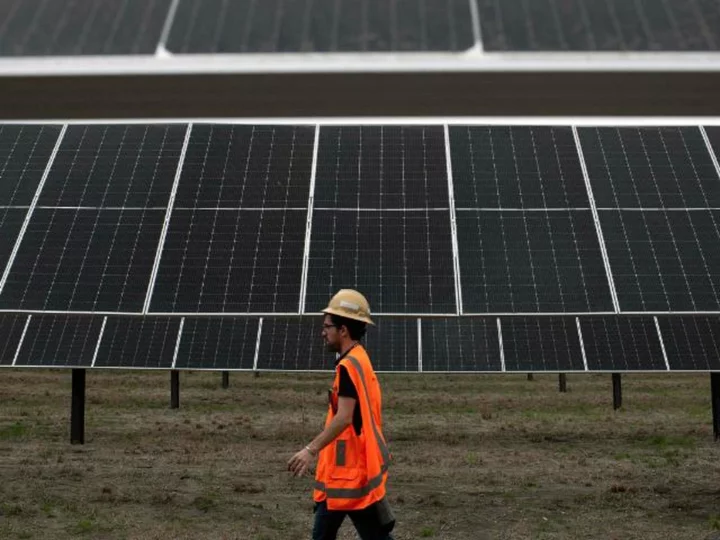
House fails to override Biden veto on solar panel tariff measure
The House on Wednesday failed to override President Joe Biden's veto of a measure related to solar panel import tariffs. A successful veto override would have required a two-thirds vote in the House and the Senate -- a high threshold that was not expected to be reached.
1970-01-01 08:00

Ecuador's Lasso seeks 'national agreement' in August elections
QUITO Ecuador's President Guillermo Lasso on Wednesday described coming early elections as an opportunity to unite the country
1970-01-01 08:00
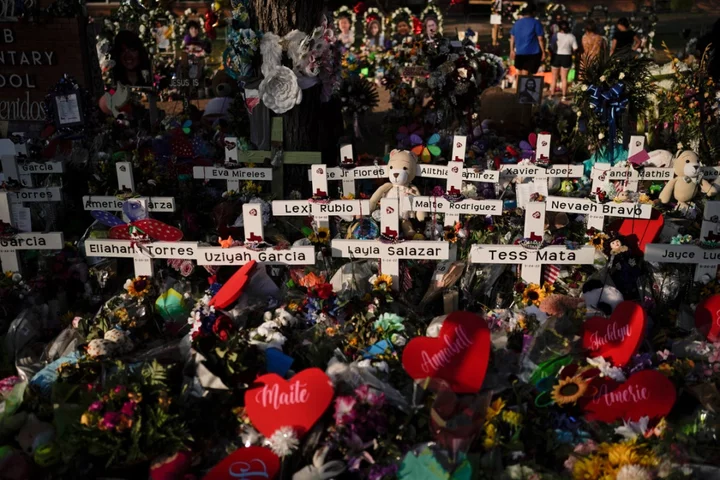
Biden makes fresh call for assault weapon ban as he marks Uvalde anniversary in emotional speech
Joe Biden has made a fresh call for the banning of AR-15 assault weapons as he marked the one-year anniversary of the Uvalde mass shooting. A gunman murdered 19 students and two teachers at the Robb Elementary School in the Texas city last May, with police heavily criticised for their slow response in taking down the shooter. Mr Biden, who was joined by first lady Dr Jill Biden for the speech, said that at the scene of each mass shooting he attended, he was told the same thing by the families of victims. “At each place, you hear the same message ‘Do something, for God’s sake do something,’” he said. “We did something afterwards but not nearly enough. We still need to ban, in my view, AR-15 assault weapons once again, you know they have been used time and again in mass killings of innocent children and people.” And Mr Biden, who visited Uvalde after the shooting, called on politicians to do more to end the gun crisis in the United States. “We can’t end this epidemic until Congress passes some common sense gun safety laws... How many more parents will live their worst nightmare,” he said. The president, who has lost two children of his own, told the families that he realised that the anniversary represented a “really tough day” for them. “Remembering is important but it is also painful,” said the president, who was surrounded by a lit candle for each victim of the mass shooting. “A year of missed birthdays, school plays and soccer games, just that smile. A year of everyday joys gone forever.” A criminal investigation into the actions of law enforcement reaction to the shooting remains underway in Texas, where it is the worst school shooting in the state’s history. A report by state lawmakers concluded that nearly 400 officers from federal, state and local agencies responded to the school but that those heavily-armed officers waited an hour to confront and kill the 18-year-old gunman. The report accused Uvalde police of failing “to prioritize saving innocent lives over their own safety.” Mr Biden has now made more than 70 unanswered calls for Congress to take action and ban assault weapons, which are commonly used in mass shootings in the country. It’s a demand he has given lawmakers dozens of times since entering office in 2021. Within his first two years in office, there have been roughly 1,400 mass shootings. He has referenced a federal ban on assault weapons, called on Congress to renew an assault weapons ban or pledged that his Democratic allies will do so roughly 70 times since entering office, according to The Independent’s March 2023 review of his public statements and remarks via Factba.se. Read More How Greg Abbott met the murders of 21 children and teachers in Uvalde with silence Chilling video shows New Mexico teen gunman’s shooting rampage: ‘Come kill me’ Supreme Court refuses to block Illinois assault weapons ban Watch as Joe and Jill Biden mark one year anniversary of Uvalde shooting On 1st anniversary of Uvalde, Texas, school shooting, Biden will push for more gun control Can Ron DeSantis beat Donald Trump? These Florida political veterans aren’t so sure
1970-01-01 08:00
